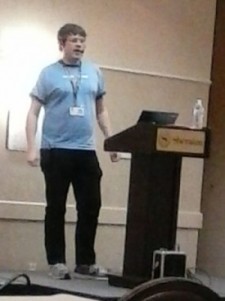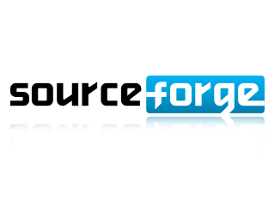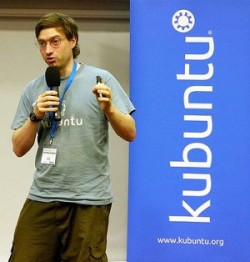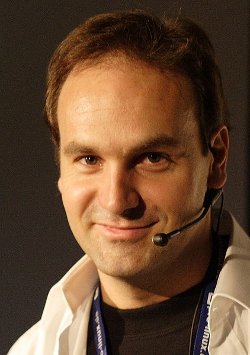Now that Microsoft has been pretty much neutralized as a threat, who’s next on the list to be free tech’s “public enemy number one?”
Oracle? While it’s true that the company is more thuggish than Redmond ever dreamed of being, Oracle has never really been a threat to anyone but the database and high finance crowds. Also, the company’s recent financials indicate the company, like Microsoft, isn’t what it used to be.
 Apple? So long as it continues to be an overpriced walled garden, it’s not likely to pose much of a threat. It’ll always be held in disdain by free tech folks, but always in the number two position because it’s easily ignored.
Apple? So long as it continues to be an overpriced walled garden, it’s not likely to pose much of a threat. It’ll always be held in disdain by free tech folks, but always in the number two position because it’s easily ignored.
My guess is that the company poised to win the most-hated-in-free-tech prize is Google.
Christine Hall has been a journalist since 1971. In 2001, she began writing a weekly consumer computer column and started covering Linux and FOSS in 2002 after making the switch to GNU/Linux. Follow her on Twitter: @BrideOfLinux



 Red Hat, Samsung Team Up: While there has been a lot of oooh-ing and ahhh-ing over what’s been coming out of the
Red Hat, Samsung Team Up: While there has been a lot of oooh-ing and ahhh-ing over what’s been coming out of the 


 Somehow I managed to get up on time to make the hour and a half trip from my house to the Charlotte area in plenty of time for the 9 A.M. opening, groggy from only getting about three hours sleep, then wondered why I bothered arriving early. After all, the first presentation I planned to attend wasn’t until 11:30, and with no keynote address scheduled for Friday morning, that left me with a lot of time on my hands.
Somehow I managed to get up on time to make the hour and a half trip from my house to the Charlotte area in plenty of time for the 9 A.M. opening, groggy from only getting about three hours sleep, then wondered why I bothered arriving early. After all, the first presentation I planned to attend wasn’t until 11:30, and with no keynote address scheduled for Friday morning, that left me with a lot of time on my hands.
 Newer converts to open source probably don’t know much about the site, but it wasn’t long ago when Linux users were very aware of SourceForge and how to use the service, at least well enough to download software — perhaps more aware than they wanted to be. It was the go-to site when looking for a program not available in a particular distro’s repository. Not anymore. Not for a while. These days, the more important projects have either migrated to GitHub or are hosting their own.
Newer converts to open source probably don’t know much about the site, but it wasn’t long ago when Linux users were very aware of SourceForge and how to use the service, at least well enough to download software — perhaps more aware than they wanted to be. It was the go-to site when looking for a program not available in a particular distro’s repository. Not anymore. Not for a while. These days, the more important projects have either migrated to GitHub or are hosting their own.
 At the height of the media frenzy that developed around Snowden’s initial revelations, there were allegations that Microsoft had not only built back doors in its software for the NSA and other government agencies to use against foreign businesses and governments, but that it was cooperating with U.S. authorities in other ways as well. For example, one report indicated that the company was passing along details of unpatched security vulnerabilities in Windows to the NSA, effectively adding temporary tools to the spy agency’s cyber arsenal.
At the height of the media frenzy that developed around Snowden’s initial revelations, there were allegations that Microsoft had not only built back doors in its software for the NSA and other government agencies to use against foreign businesses and governments, but that it was cooperating with U.S. authorities in other ways as well. For example, one report indicated that the company was passing along details of unpatched security vulnerabilities in Windows to the NSA, effectively adding temporary tools to the spy agency’s cyber arsenal.





 The best news of the week, of course, is that we’re everywhere. Steven J. Vaughan-Nichols wrote a
The best news of the week, of course, is that we’re everywhere. Steven J. Vaughan-Nichols wrote a